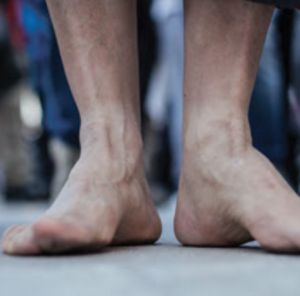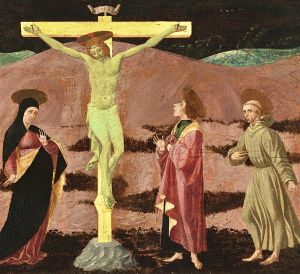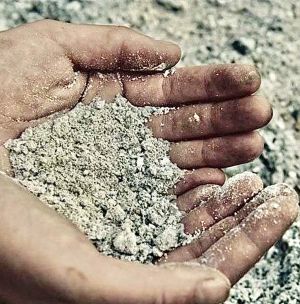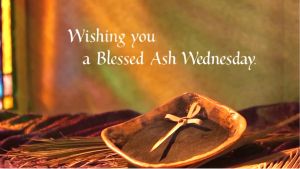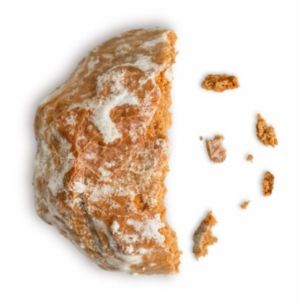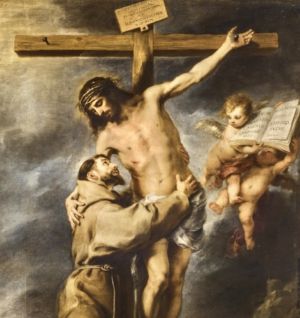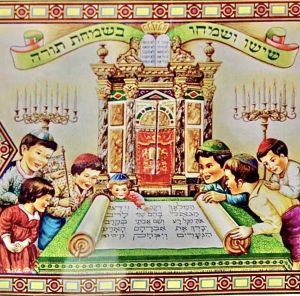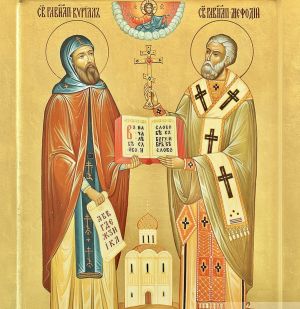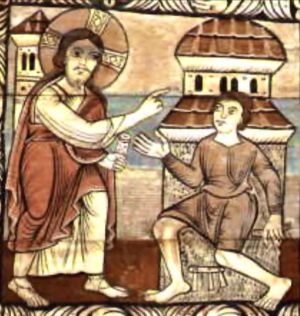
Teresa Girolami
Teresa Girolami è laureata in Materie letterarie e Teologia. Ha pubblicato vari testi, fra cui: "Pellegrinaggio del cuore" (Ed. Piemme); "I Fiammiferi di Maria - La Madre di Dio in prosa e poesia"; "Tenerezza Scalza - Natura di donna"; co-autrice di "Dialogo e Solstizio".
Franciscan Lent: air of Freedom
The Minim forbade excesses
Jesus replied to John's disciples, who were fasting a lot, surprising them: as long as the Bridegroom is with his wedding guests, they cannot fast.
Francis knew well how to discern between the importance of fasting and the exaggeration of doing it. Indeed, in his life, never did form take the place of substance.
The Sources illustrate:
"Francis rebuked his brothers who were too hard on themselves and who reached exhaustion by dint of vigils, fasts, prayers and corporal penances [...].
The man of God forbade such excesses, admonishing those brothers lovingly and calling them to common sense, healing their wounds with the medicine of wise instructions [...].
He spoke with them, identifying himself with their situation, not as a judge then, but as an understanding father with his children and as a compassionate doctor with his own sick. He knew how to be sick with the sick, afflicted with the afflicted" (FF 1470).
All this while being "a new man, [who] with new virtues renewed the way of perfection that had disappeared from the world" (FF 3162).
«Can the wedding guests be afflicted as long as the Bridegroom is with them?» (Mt 9:15)
Friday after Ash Wednesday (Mt 9:14-15)
Two Sisters: Denial in Charity
Jesus emphasises how 'to lose' one's life for the cause of the Kingdom is, in truth, to gain it.
Francis, at the beginning of the Regola non bollata (1221), writes that the brothers wished to live following the example of the Lord Jesus.
He emphasises various expressions of the Gospel, highlighting the importance of denying oneself and taking up the cross.
The pious father often gathered his sons around him and spoke at length about the Kingdom of God "the contempt of the world, the necessity of denying one's own will" (FF 1058), teaching them.
"Go [...] proclaim peace to men; preach penance for the remission of sins. Be patient in tribulation, watchful in prayer [...]" (FF 1058).
Leaving oneself to embrace the call in all its breadth, willing to lose one's life to find it in the incarnate Word, was the motif of their daily life.
Illuminating is a passage from the Sources, taken from the Major Legend:
"While one day he was praying, so isolated from the world, and was all absorbed in God, in the excess of his fervour Christ Jesus appeared to him, like one confined on a cross.
On seeing him, he felt his soul melt. The memory of Christ's passion was so vividly imprinted in the innermost recesses of his heart, that from that moment on, when Christ's crucifixion came to his mind, he could hardly restrain himself, even outwardly, from tears and sighs, as he himself reported in confidence later, when he was approaching death.
The man of God understood that, through this vision, God was addressing to him that maxim of the Gospel: 'If you want to come after me, deny yourself, take up your cross and follow me' (FF 1035).
But Clare too, her blessed father's first seedling, always endeavoured to deny herself, spurring her own soul and that of her sisters with assiduous meditation on the Passion of Christ.
"To nourish her soul uninterruptedly with the ineffable joys of the Crucifix, she meditated very frequently on the prayer of the five wounds of the Lord. She learned the Office of the Cross, as St Francis, the lover of the cross, had composed it, and she used to recite it with equal love" (FF 3216).
In her wonderful letter to Ermentrude of Bruges*, Clare expresses herself thus:
"Lift up your eyes to heaven, O dearest, for it is an invitation to us, and take up your cross and follow Christ who goes before us. For after many and various tribulations, it is He who will lead us into His glory.
Love God with all your heart, and Jesus, His Son crucified for us sinners, and never let the memory of Him fall from your mind.
Meditate without tiring yourself on the mystery of the cross and on the sorrows of the Mother standing at the foot of the cross" (FF 2915).
Clare, following the example of Francis, lived the Holy Word of the Gospel enclosed in St Damian's, out of love for the Bridegroom, repudiating every worldly ambition.
In the time in which she lived, she chose to live as a recluse for those she loved and by whom she felt loved.
The penitential and renegade dimension is no longer so harsh and disconcerting, when it is Charity that exudes from the walls the beauty of the spousal and regenerative experience she had, by Grace, as well as so many of her sisters.
Ermentrude is responsible for the spread of the Order of the Poor Clares in Flanders.
«For whoever wishes to save his life will lose it, but whoever loses his life for my sake will save it» (Lk 9:24)
Thursday after Ash Wednesday (Lk 9:22-25)
Let Charity be an example
On this Ash Wednesday, the liturgy brings to our reflection three cornerstones of the Lenten season that is beginning.
The focus is on discreet charity, on prayer in hiddenness, on fasting from sin combined with bodily fasting, attested by a joyful countenance.
The Poor Man of Assisi, after his initial conversion, never ceased meditating on Jesus' forty days in the desert, before his public life, and constantly thought of the Passover of the Lamb sacrificed for our redemption.
Francis lived his entire existence according to a penitential style, never allowing form to dominate over substance; implementing the Word in a wise human and spiritual balance, synonymous with inner stature.
He was hard on himself, but tender and compassionate with the brothers who exceeded in debilitating fasts.
In the Sources we read:
"Francis reproached his brothers who were too hard on themselves, and who reached exhaustion by dint of vigils, fasts, prayers and corporal penances.
Some in fact, in order to repress the ardour of their senses, inflicted torments on themselves so cruel that they seemed to be driven by suicide.
The man of God forbade such excesses, admonishing those brothers lovingly and calling them to common sense, healing their wounds with the medicine of wise instructions" (FF 1470).
He continually brought Christ's Passion to mind and called for mortification.
"If he was at table with people of the world and they offered him food to his taste, he would barely taste it, making some excuse so that they would not notice that he was depriving himself of it out of penance.
And eating with the brothers, he often put ashes on the food, saying, to disguise his abstinence: 'Sister ashes is chaste!
But also, out of love for the brothers, he knew how to make himself one with their needs and weaknesses.
"Although, then, with all his strength he encouraged the brothers to an austere life, he did not like that intransigent severity that does not cover the heart of piety and is not seasoned with the salt of discretion.
One friar, due to excessive fasting, could not sleep at all one night, tormented as he was by hunger. Realising the pitiful shepherd that his sheep was in danger, he called the friar over, put some bread in front of him and, to prevent him from blushing, he began to eat first, while gently inviting the other to eat" (FF 1095).
So the brother banished his shame and contentedly took food.
Francis' vigilance and condescension had prevented the friar's body from being harmed, giving him cause for great edification.
In the morning, explaining the incident to his sons, he said to them:
«To you brethren, let not food but charity be an example» (FF 1095).
The Minim was animated by a strong contemplative sense.
Celano, in the Second Life, informs us:
"He was not so much a praying man as he himself was transformed into living prayer" (FF 681).
He was always looking for secluded spaces where he could be united with Christ.
"And if he suddenly felt visited by the Lord, so as not to be without a cell, he made himself a small one with his cloak.
And if at times he was without it, he would cover his face with his sleeve, so as not to reveal the hidden manna" (FF 681).
«When you pray, enter into your chamber, and shut your door [Is 26:20; 2 Kings 4:33] pray to your Father, who [is] in secret» (Mt 6:6)
That conversion, which began for the Poverello when he stopped worshipping himself (as the Sources say), lasted for the whole of his life, fading in the three directions described and suggested by the Gospel.
«But when you give alms, let not your left hand know what your right hand is doing, so that your alms may be in secret, and your Father who looks in secret will [render] it to you» (Mt 6:3-4)
Ash Wednesday (Mt 6:1-6.16-18)
Ash Wednesday of Francis and Clare
Francis and Herod's leaven
Even Francis, when he was still in the world and faced with the unravelling of his specific call from the Lord [and subsequent conversion] had to struggle against Herod's leaven: lust for power and glory.
It was God, then, who enlightened him and made him distance himself from what was leading him astray.
"A nobleman from Assisi, eager for money and glory, took up arms to go and fight in Apulia. On hearing of this, Francis was seized with a thirst for adventure. So, in order to be created a knight by a certain Count Gentile, he prepares a trousseau of precious cloths; for if he was less rich than his fellow citizen, he was, however, more generous than him in spending [...]" (FF 1399).
But the Lord, knowing him to be so eager for glory and power, visited him with a vision.
While he was sleeping, a man appeared to him who, calling him by name, led him to a beautiful palace where weapons and objects of warfare were seen hanging on the wall.
Francis asked to whom all these things and the palace belonged. He was answered that it all belonged to him and his knights.
He woke up, all happy, interpreting the dream according to worldly criteria. Having not yet fully tasted the spirit of God, he imagined he would become a prince.
So, interpreting it as an omen of good fortune, he wanted to leave for Apulia, to be created a knight by that Count.
When he arrived in Spoleto, he began to feel unwell and in his sleep he heard a voice asking him where he was going. Francis told him of his ambitious project.
"He said, «Who can be of more use to you: the master or the servant?» He answered: «The master».
The One resumed: «Why then do you abandon the master to follow the servant, and the prince for the subject?»
Then Francis asked, «Lord, what do you want me to do?»
Concluded the voice: «Return to your city and there you will be told what you must do; for the vision that has appeared to you must be interpreted in a different sense».
[...] The morning dawned and in great haste he diverted his horse to Assisi, happy and exultant" (FF 1401).
Thus Francis abandoned the leaven of Herod to adhere to Christ, becoming its great Herald, courageous and tenacious.
Tuesday 6th wk. in O.T. (Mk 8,14-21)
What Sign?
In the verses from Mark's Gospel, Jesus is disgusted by the hypocritical Pharisees, who start arguing with Him asking for a sign from heaven to test Him, after the miracle of the multiplication of the loaves and fishes.
All this causes a deep disappointment in Christ.
Francis of Assisi followed Jesus not because of the wonders that the Lord performed but by Faith; won over by his Gospel, by the Beatitudes enunciated on the Mount, by his having died and risen again - for him.
This had attracted him and made him fall in love with the bare Gospel parable, without 'ifs' and 'buts'.
The Sources, the jewel of the Franciscan path, help us to understand.
«Therefore all those who saw the Lord Jesus according to humanity, but did not see or believe, according to the spirit and divinity, that he is the true Son of God, are condemned».
And so now all those who see the sacrament, which is sanctified through the words of the Lord above the altar in the hands of the priest, under the species of bread and wine, and do not see nor believe, according to the spirit and divinity, that he is truly the most holy body and blood of our Lord Jesus Christ, are condemned, for it is The Most High Himself who bears witness to this, when He says:
«This is my body and blood of the new covenant [which will be shed for many]», and again:
«Whoever eats my flesh and drinks my blood has eternal life» (FF 142).
If the Presence of the Son of God is not enough to make one believe, what other sign can be given to this generation?
Francis' faith is the best response to worldly insipience.
«And the Lord gave me so much faith in the churches, that I simply prayed» and said:
«We adore you, Lord Jesus Christ, even in all your churches which are throughout the whole world, and we bless you, because by your holy cross you have redeemed the world» (FF 111 - Testament of St Francis).
This is the only Sign!
«And He groaning in His spirit says: Why does this generation seek a sign?» (Mk 8:12a)
Monday, 6th wk. in O.T. (Mk 8,11-13)
Beyond the law, higher Justice
This Sunday's long passage, taken from the Gospel of Matthew, addresses various themes.
Among these is the urgency of overcoming the legalism of the scribes and Pharisees by carefully doing God's will.
Almost without realising it, Francis was a great spiritual teacher.
By grace, he was convinced that justice always goes hand in hand with mercy.
A justice far removed from grim rigidity, eager to express itself in the fulfilment of God's will, always respecting one's brother.
The Franciscan Sources teach us a great deal about this.
"If it ever happened that a brother uttered a word that could hurt someone, his remorse would not allow him to rest until he confessed his mistake, humbly throwing himself to the ground and begging the offended party to put his foot on his mouth.
If that brother refused to do so, when the offender was his superior, he commanded him to put his foot on his mouth; when he was a subject, he had the person in charge order him to do so.
In this way, the friars committed themselves to banishing all resentment and incompatibility and to preserving mutual love intact.
They did everything possible to replace every vice with the corresponding virtue, inspired and assisted in this by the Grace of Jesus Christ" (FF 1449).
Justice and Mercy are to be sought, to be asked of God first and foremost in prayer and silence, for a new heart is a gift from the Lord, a continuous exodus.
In the Rule of the Hermits, written by Francis, we read:
«And these [the friars] shall have a cloister, in which each shall have his own little cell, in which he can pray and sleep [...] and they shall rise for matins, and first of all seek the kingdom of God and his Justice» (FF 137).
In the same Praises of God Most High, Francis emphasises that God is Justice:
«[...] You are Justice,
You are temperance,
You are all our wealth in sufficiency» (FF 261).
The Poor man, knowing that the Lord-Justice called for more than just a manner of justice, worked tirelessly for the Kingdom of Heaven and tried to teach his friars to do the same.
He never forgot that mercy always prevails in God's judgement.
«For I tell you that unless your righteousness surpasses that of the scribes and Pharisees, you will not enter into the Kingdom of Heaven» (Mt 5:20).
6th Sunday in Ordinary Time, year A (Mt 5:17-37)
Two by two for the Kingdom
«And he sent two by two before him into every city and place where he was about to go» (Lk 10:1).
This passage from the Gospel of Luke was well impressed in the memory of Francis of Assisi and, preparing his brothers for the mission, he expressed it thus:
"In the name of the Lord, go two by two through the streets, with dignity, keeping silence from morning until after the third hour, praying in your hearts to the Lord.
No frivolous and vacuous talk among yourselves, for although you are on the way, your behaviour must be as collected as if you were in a hermitage or in a cell.
Wherever we are or move, we take our cell with us: brother body; the soul is the hermit who dwells in it to pray to God and meditate.
And if the soul does not live serenely and solitarily in its cell, very little use is served to the religious by a cell erected by the hand of man" (FF 1636).
Thus prepared, the brothers went out to announce the Good News.
In the Sources we read again:
"He insisted that the brothers should not judge anyone, nor look down on those who live in luxury [...] for God is our Lord and theirs, and he has the power to call them to himself and to make them righteous [...].
And he added: 'Such must be the behaviour of the brothers in the midst of the people, that whoever hears and sees them, may be led to glorify and praise the heavenly Father'.
It was his fervent wish that both he and the brothers should abound in good works, by which the Lord is praised. And he said:
"The peace you proclaim with your mouth, have it even more abundantly in your hearts.
Do not provoke anyone to anger or scandal, but let all be drawn to peace, goodness, concord by your meekness.
This is our vocation: to heal the wounds, to bind up the broken, to call back the lost.
Many, who seem to us members of the devil, may one day become disciples of Christ" (FF 1469).
The Poor Man of Assisi, before communicating the Word of God to the people, wished for peace, saying:
"May the Lord give you Peace" (FF 359).
This he always announced with great devotion to those who came to him.
And it often happened that, with God's grace, the enemies of Peace and of their own salvation became children of Peace.
Preaching and healing the sick he met, he would say:
«The kingdom of God is at hand» (Lk 10:9).
Many were thus urged to repent and follow Christ and disciple Him.
St Cyril and Methodius, 14 February (Lk 10:1-9)
Splinters of light for the path of many
Mark recounts the healing of a deaf man who stutters: Jesus calls him aside, puts his fingers in his ears and touches his tongue with saliva.
Even the witnesses of the Word of God, those who resemble Christ in life, are made capable of healing the sick of all kinds by Him.
Francis had this charisma from God. We read in the Sources:
"In Città della Pieve there was a young beggar, deaf and mute from birth. His tongue was so short and thin that it seemed to be cut off at the root [...].
A certain Mark gave him hospitality for the love of God, and the young man, feeling that he loved him, made a habit of staying with him.
One evening during dinner, Mark said to his wife in the presence of the young man:
"If blessed Francis would give this boy back his hearing and speech, that would be a great miracle".
Then he added: "I vow to God that if Francis deigns to perform this miracle, I will keep this boy at my own expense all his life".
A truly marvellous thing: at that very instant the boy's tongue swelled and he began to speak, saying: 'Glory to God and St Francis, who have given me hearing and speech!
Yes, the Lord does everything well, always!
He gives his prophets what they sensitively attest with their lives, transforming them into splinters of Light for the path of many.
The Lord also uses his friends for those who do not want to hear and obey the Word, bringing them back to listening.
In the Sources we find a significant episode, taken from the Second Life of Celano.
"Another friar did not want to obey the Saint's vicar, but followed a confrere as his superior.
The Saint, who was present, admonished him by means of a third person, and he threw himself at the feet of the vicar and, leaving the master whom he had chosen, promised obedience to the one whom the Saint assigned to him as his superior.
Francis heaved a deep sigh, and turned to his companion, whom he had sent to warn him:
"I saw, brother," he said to him, "on the back of the disobedient friar a devil clasped around his neck.
Subdued and held in bridle by such a knight, after having shaken the bite of obedience, he let himself be led by his will and whim.
But when I prayed to the Lord for him, immediately the demon turned away in confusion'.
So penetrating was this man's gaze, that although he had weak eyes for material things, he had discerning ones for the spirit [...].
There is, I say, no other choice: either to carry a light burden, by which you yourself will rather be carried, or to be a slave to iniquity" (FF 620).
«He has done all things well, and makes the deaf to hear and the dumb to speak» (Mk 7:37)
Friday 5th wk. in O.T. (Mk 7,31-37)
Anyone who welcomes the Lord into his life and loves him with all his heart is capable of a new beginning. He succeeds in doing God’s will: to bring about a new form of existence enlivened by love and destined for eternity (Pope Benedict)
Chi accoglie il Signore nella propria vita e lo ama con tutto il cuore è capace di un nuovo inizio. Riesce a compiere la volontà di Dio: realizzare una nuova forma di esistenza animata dall’amore e destinata all’eternità (Papa Benedetto)
You ought not, however, to be satisfied merely with knocking and seeking: to understand the things of God, what is absolutely necessary is oratio. For this reason, the Saviour told us not only: ‘Seek and you will find’, and ‘Knock and it shall be opened to you’, but also added, ‘Ask and you shall receive’ [Verbum Domini n.86; cit. Origen, Letter to Gregory]
Non ti devi però accontentare di bussare e di cercare: per comprendere le cose di Dio ti è assolutamente necessaria l’oratio. Proprio per esortarci ad essa il Salvatore ci ha detto non soltanto: “Cercate e troverete”, e “Bussate e vi sarà aperto”, ma ha aggiunto: “Chiedete e riceverete” [Verbum Domini n.86; cit. Origene, Lettera a Gregorio]
In the crucified Jesus, a kind of transformation and concentration of the signs occurs: he himself is the “sign of God” (John Paul II)
In Gesù crocifisso avviene come una trasformazione e concentrazione dei segni: è Lui stesso il "segno di Dio" (Giovanni Paolo II)
Only through Christ can we converse with God the Father as children, otherwise it is not possible, but in communion with the Son we can also say, as he did, “Abba”. In communion with Christ we can know God as our true Father. For this reason Christian prayer consists in looking constantly at Christ and in an ever new way, speaking to him, being with him in silence, listening to him, acting and suffering with him (Pope Benedict)
Solo in Cristo possiamo dialogare con Dio Padre come figli, altrimenti non è possibile, ma in comunione col Figlio possiamo anche dire noi come ha detto Lui: «Abbà». In comunione con Cristo possiamo conoscere Dio come Padre vero. Per questo la preghiera cristiana consiste nel guardare costantemente e in maniera sempre nuova a Cristo, parlare con Lui, stare in silenzio con Lui, ascoltarlo, agire e soffrire con Lui (Papa Benedetto)
In today’s Gospel passage, Jesus identifies himself not only with the king-shepherd, but also with the lost sheep, we can speak of a “double identity”: the king-shepherd, Jesus identifies also with the sheep: that is, with the least and most needy of his brothers and sisters […] And let us return home only with this phrase: “I was present there. Thank you!”. Or: “You forgot about me” (Pope Francis)
Nella pagina evangelica di oggi, Gesù si identifica non solo col re-pastore, ma anche con le pecore perdute. Potremmo parlare come di una “doppia identità”: il re-pastore, Gesù, si identifica anche con le pecore, cioè con i fratelli più piccoli e bisognosi […] E torniamo a casa soltanto con questa frase: “Io ero presente lì. Grazie!” oppure: “Ti sei scordato di me” (Papa Francesco)
Thus, in the figure of Matthew, the Gospels present to us a true and proper paradox: those who seem to be the farthest from holiness can even become a model of the acceptance of God's mercy and offer a glimpse of its marvellous effects in their own lives (Pope Benedict))
Nella figura di Matteo, dunque, i Vangeli ci propongono un vero e proprio paradosso: chi è apparentemente più lontano dalla santità può diventare persino un modello (Papa Benedetto)
duevie.art
don Giuseppe Nespeca
Tel. 333-1329741
Disclaimer
Questo blog non rappresenta una testata giornalistica in quanto viene aggiornato senza alcuna periodicità. Non può pertanto considerarsi un prodotto editoriale ai sensi della legge N°62 del 07/03/2001.
Le immagini sono tratte da internet, ma se il loro uso violasse diritti d'autore, lo si comunichi all'autore del blog che provvederà alla loro pronta rimozione.
L'autore dichiara di non essere responsabile dei commenti lasciati nei post. Eventuali commenti dei lettori, lesivi dell'immagine o dell'onorabilità di persone terze, il cui contenuto fosse ritenuto non idoneo alla pubblicazione verranno insindacabilmente rimossi.



